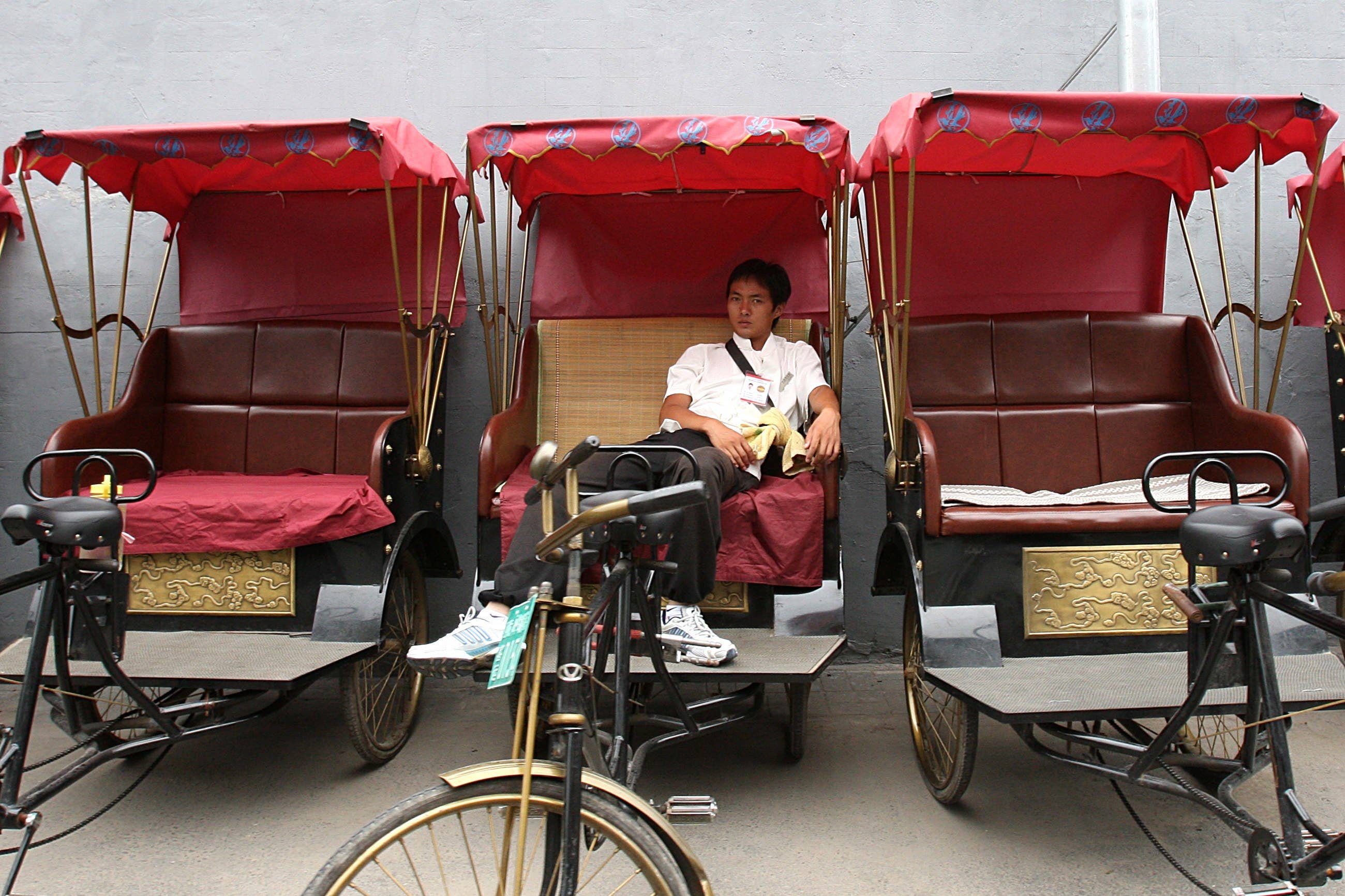Application for cycle rickshaw service stumps officials
Civil servants in Northern Ireland examined legislation and rickshaw services across the UK to find a solution.

Your support helps us to tell the story
From reproductive rights to climate change to Big Tech, The Independent is on the ground when the story is developing. Whether it's investigating the financials of Elon Musk's pro-Trump PAC or producing our latest documentary, 'The A Word', which shines a light on the American women fighting for reproductive rights, we know how important it is to parse out the facts from the messaging.
At such a critical moment in US history, we need reporters on the ground. Your donation allows us to keep sending journalists to speak to both sides of the story.
The Independent is trusted by Americans across the entire political spectrum. And unlike many other quality news outlets, we choose not to lock Americans out of our reporting and analysis with paywalls. We believe quality journalism should be available to everyone, paid for by those who can afford it.
Your support makes all the difference.An application to introduce a cycle rickshaw service in Northern Ireland in 2000 sparked a UK-wide hunt by officials to determine the legal position, it has emerged.
It was proposed to introduce cycle rickshaws initially in Belfast, offering short trips in and around the city centre – including on the Lagan Towpath and to the then-newly built Odyssey Arena on Queen’s Island.
The initial email inquiry dated November 17, 2000 referred to importing £4,000 cycles to Northern Ireland to carry two-three passengers and be operated by trained personnel.
The person interested in starting the service said they had negotiated public liability for £2 million, employees liability and general business insurance, and asked for guidance around what requirements there would be from government departments.
A flurry of emails between officials to determine how to license the service on public roads, and also on the Lagan Towpath, are recorded in a previously secret public records file.
It involved discussion around how such services were licensed in Great Britain and a law from 1889, and was described in a hand-written note as “not going to be an easy one to resolve” in terms of how it could be licensed.
Further research was undertaken into how similar requests had been dealt with in York – where they were treated as horse-drawn carriages, but it could not be determined who should test them, Oxford where they were in competitions with hackneys and the operator then went bankrupt, and Salisbury where rickshaws were licensed through the Town Police Clauses Act of 1847 and 1889.
That note added: “The Salisbury people have made references to the convenience of turning down the applications but they decided against it and I feel we have no option but to progress with the applicant if they are still interested.”